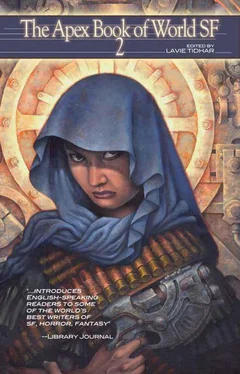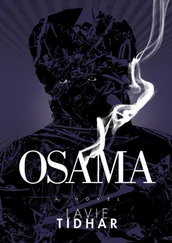Normally, Katulo was in the midst of any celebration, pushing his antique body to the limit by asking pretty young girls to dance. If necessary, he would dance using his walking stick for balance. But today, even with all the pomp and energy, it was impossible for him to relax and enjoy himself. His mind was with the wounded youth in his clinic and his eyes were drawn to things he would not normally have noticed. The Marulas, a family with Hutu blood, sat separately from the rest of the guests and nobody approached them to give greetings. Also, Osati, Dengo and a group of their friends walked around pulling people aside and talking in whispers. After the whispers, nods of agreement would follow. Even people who usually had no time to listen to Osati’s denunciations of the Hutus were moved by his words. Chama’s injury had made his solicitations much more persuasive.
Katulo was tempted to leave but he was the last person in the village, in all Burundi, actually, who could perform the Waking ceremony. He had tried to teach many of his apprentices how to do it but had been unsuccessful. Even when his father had taught him, the skill was almost forgotten.
Eyo approached Katulo twice to make sure he would not change his mind about letting him watch. This, at least, amused Katulo. He had to admit that he drove Eyo harder than his previous apprentices. Katulo was increasingly aware that he did not have much longer to live. With his previous apprentices, he had stuck to teaching medicines and physiology, but there were other things Katulo wished to pass on. He had seen so many amazing things. He had been there when Burundi won the 10,000 metres in the Olympics, beating the Kenyans and Ethiopians. He had listened to Wana Maisu’s final concert. He had survived two droughts and one epidemic. He had also seen Africa become fully independent as Europe and America were torn apart in a succession of wars. He had been part of the Second Revolution and treated President Peneka himself for gout. He had listened to the visionary president blabber to conceal his nervousness. There were so many memories, small things as well—some that he esteemed more than the things worthy of history books: how good it felt to run naked in the forest, the unique taste of roasted groundnuts when eaten after love making, the amazing things he’d learnt about his mother when she finally spoke to him as an equal.
Every morning, as he and Eyo ate breakfast, he would begin. He would tell the boy the history of Burundi, myths, proverbs, and stories. He told Eyo dirty jokes—oral tradition that would be a crime to forget—with the same passion that he taught the boy herbal remedies and anatomy. Eyo never complained. It was hard for him to absorb a lot of what Katulo taught, but he tried. He deserved the privilege of seeing a Waking ceremony.
After the wedding vows, the father of the bride called Katulo. The young boys and girls were taken away to eat boiled sweets and spiced cassava. “Not him,” Katulo objected when they tried to take Eyo. He winked at his apprentice, which elicited a huge grin.
Katulo took out his ceremonial mask, put aside his walking staff, and walked unsteadily to the bride and groom. The mask was not actually needed for Waking, but it was tradition. The mask depicted a buffalo’s head. The horns were brass and the face was carved out of wood. There were gaps for the eyes and the mouth. When he was standing a few steps in front of the married couple, Katulo spoke loudly. His voice was richer and more musical when he performed the role of Waker. “A river is a droplet of water; a mountain is a tiny pebble; and the two of you are all of Burundi. This union is not only between two people but between two souls and two families. Your love will forever change the community. It will enrich us when we are frightened, sustain us when we are lost, and our community will continue to grow. You will bring us the future but never forget that you are connected always to the past.”
The bride and groom had been told what to do when he said these words. The groom cradled his new wife’s head between his palms and leant forwards. Katulo lifted his arms in the air and opened his senses to their kiss. He let himself feel the moment. At the same time he thought of his marriage to Owuro when he was twenty-six. He let himself relive the rush of adrenaline and the tremble in his lips before he kissed her. He pictured Owuro’s light olive skin and long braids. He thought of her crooked smile and mischievous eyes. He remembered the taste of her wedding kiss—light cinnamon and cloves. His flesh tingled. He felt the earth around him as if it were part of his body. He let his memories seep into the ground.
Between the wedding guests, wispy figures appeared. The mirages were all embracing and kissing. They were misty at first and then gradually became fully visible. There were twelve couples in total. Some were barefoot and almost naked, while others were adorned with tinted cloths, beads and bangles. Most of them were young but there was a grey-haired couple hugging each other near the bride and groom. It was not only images that were Wakened. The air was suddenly full with the sound of lovers’ giggles and frenzied exhalations. Scents of perfume, coconut and crushed flower petals tickled every nostril
One or two of the guests began to weep. Wakings were intense because everyone watching experienced a measure of the action. That is why young boys and girls were chased away. Every guest, for a minute, felt the passion and desire of the distant past. Katulo’s gaze focused on one couple. The woman was wearing an elaborate headdress that denoted her as a storyteller, and the young man with her had a proud, regal face and a thick moustache. It was strange to see the younger version of himself. No matter how many times he performed Wakings, it was the hardest part to get used to. His younger self was smirking with self-confidence. Owuro looked so young and so beautiful. Katulo wished he could step forwards and touch her. She looked so real.
And then, in a breath, she and the rest of the spectres were gone.
The father of the bride was the first to snap out of the silent awe that enshrouded everyone in the grove. He bowed deeply. “Thank you, Waker.”
Katulo did not stay for the rest of the reception. He wanted to get to Bujumbura by nightfall. He said his good-byes and summoned Eyo. If the boy was disappointed at having to leave the festivities, it did not show. He obeyed immediately and a little nervously. He seemed frightened. At first Katulo was sure he was imagining it but, as they walked, Eyo continued to glance at him from time to time. He would look away whenever Katulo looked back. At first Katulo ignored it but, after they had been walking for an hour, he lost his patience. “I am the same person I was yesterday?”
“I know,” was the timid reply.
“You are looking at me like I am not human.”
“I’m sorry.”
“I’m not angry with you, Eyo. What is on your mind?”
“Nothing”
Nothing? This from the boy who usually asked “why” with irritating consistency after every statement Katulo made. “If the Waking is bothering you, you can ask me about it.”
Eyo hesitated. Katulo did not insist. He waited.
“Th… Those were g…ghosts?”
“Yes,” Katulo replied. “But they were not ghosts of dead people. They were ghosts of past moments. Everything is changed by the passage of time. When a river passes over rocks it wears them down in a unique pattern. A man who knows how to look can tell you many things about the river and the rocks because the mark they leave is unique. It is the same for actions. Everything we do changes the land. When we sang at the wedding, when we danced, even now as we walk, our steps are changing the earth. The land remembers.”
Читать дальше












